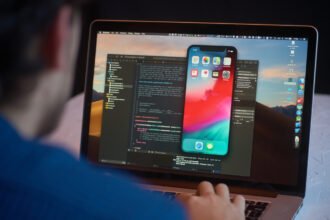If you haven’t already seen this neat freak of a robot folding towels in a Berkeley lab, it’s worth a look for comic appeal as well as technical bravado. (ex Andrew Sullivan). This is an example of a domain expert non pareil. It’s great at folding towels, just the way other robots are experts at riveting car chassis or replacing hips. But how can these one-trick robots join efforts?
I was talking a while back with people at Microsoft about robotics. They way they see it, the field is still where computers were in the 1970s. There’s loads of different software for different types of applications, but as of yet no broad platform for industrial-scale development. Of course, Microsoft would like to provide that, just as it did for PCs.
In the artificial intelligence project I’m exploring for my book, IBM’s development of a Jeopardy-playing computer, researchers are working on open-source platforms, such as UIMA. It’s a system to analyze enormous volumes of unstructured data, using dozens or hundreds of different methods. One effort might be analyzing the structure of sentences while another will be busy with ‘entity’ recognition, making sure that ‘Athens’ is a …
If you haven’t already seen this neat freak of a robot folding
towels in a Berkeley lab, it’s worth a look for comic appeal as well as
technical bravado. (ex Andrew
Sullivan). This is an example of a domain expert non pareil. It’s
great at folding towels, just the way other robots are experts at
riveting car chassis or replacing hips. But how can these one-trick robots join
efforts?
I was talking a while back with people at Microsoft about robotics. They
way they see it, the field is still where computers were in the 1970s.
There’s loads of different software for different types of
applications, but as of yet no broad platform for industrial-scale
development. Of course, Microsoft would like to provide that, just as it
did for PCs.
In the artificial intelligence project I’m exploring for my book, IBM’s
development of a Jeopardy-playing computer, researchers are working on
open-source platforms, such as UIMA. It’s a system to
analyze enormous volumes of unstructured data, using dozens or hundreds
of different methods. One effort might be analyzing the
structure of sentences while another will be busy with ‘entity’
recognition, making sure that ‘Athens’ is a city and that ‘Bob’ is (most
likely) a masculine person.
While the towel-folding robot is a domain expert, the Jeopardy-playing
computer, Watson, is a generalist. It has to know quite a bit about lots of things. If UIMA becomes a broadly accepted platform, others can build on this effort. This is important, because Jeopardy alone, while impressive, in the end is not much more useful than folding towels.
***
The Wall Street Journal runs a story today saying something that we’ve been following here for a long time: Tech firms are eager to hire Numerati.
Rather than looking for just plain-vanilla computer scientists, who
typically don’t have as deep a study of math and statistics, companies
from Facebook Inc. to online advertising company AdMob Inc. say they
need more workers with stronger backgrounds in statistics and a related
field called machine learning, which involves writing algorithms that
get smarter over time by looking for patterns in large data sets.







